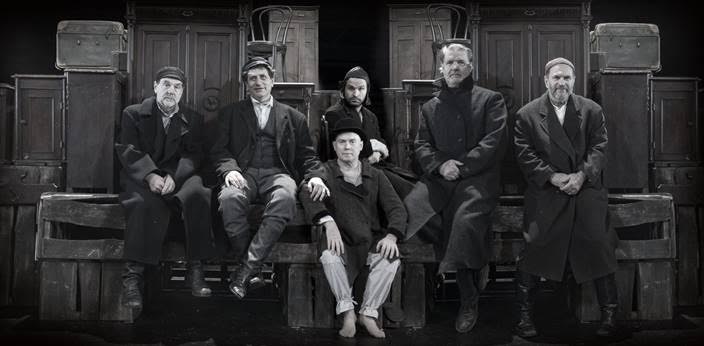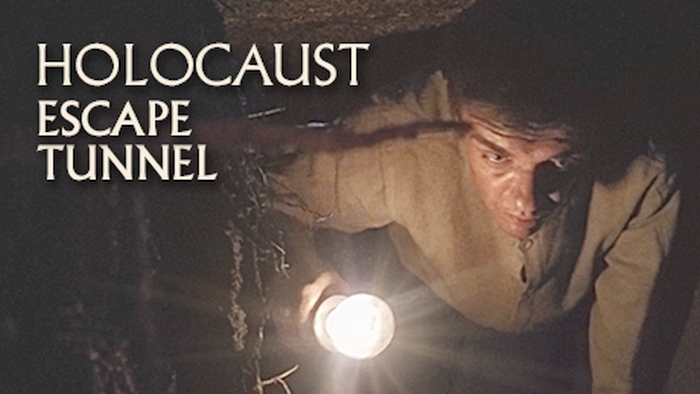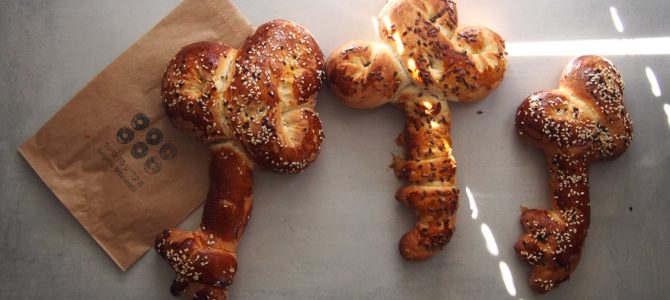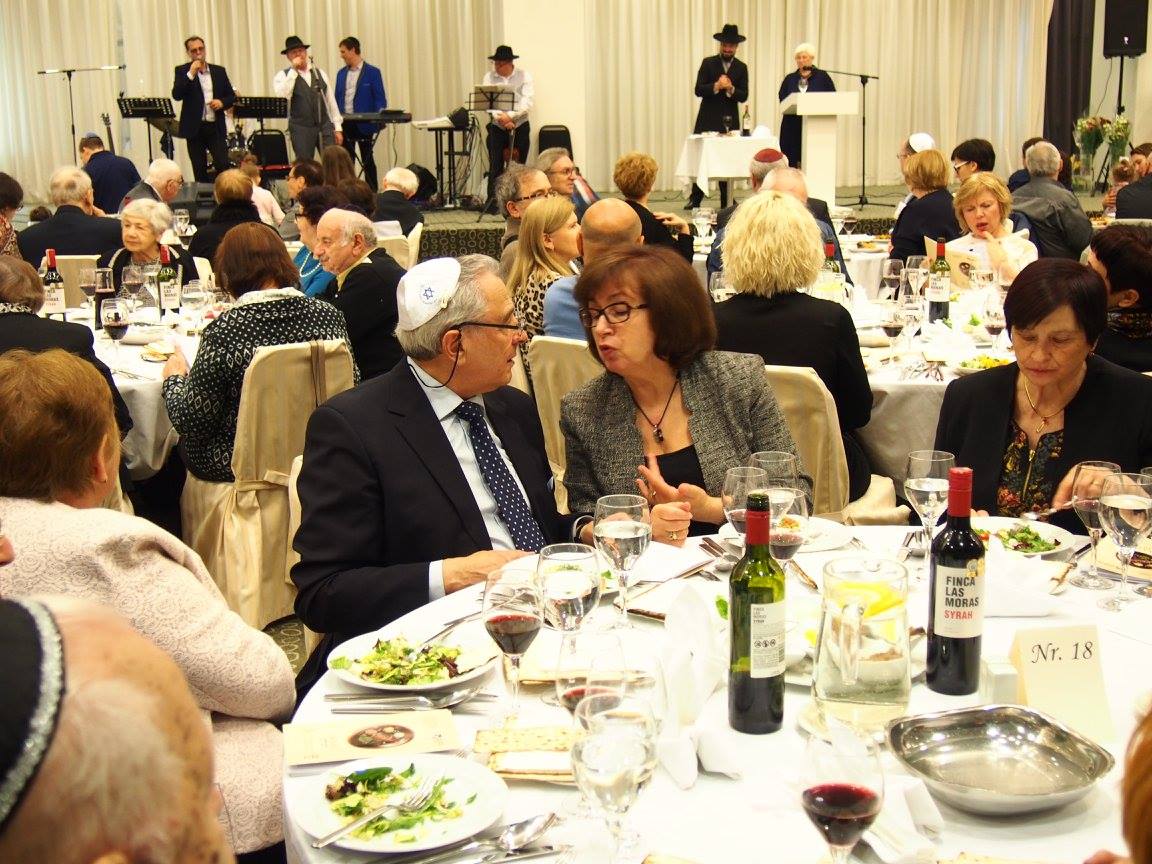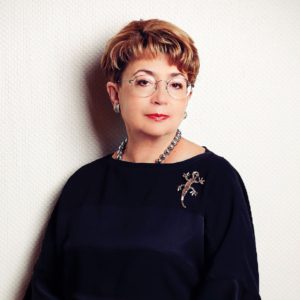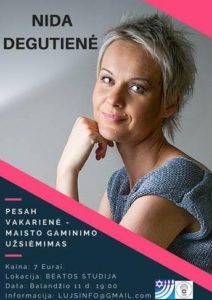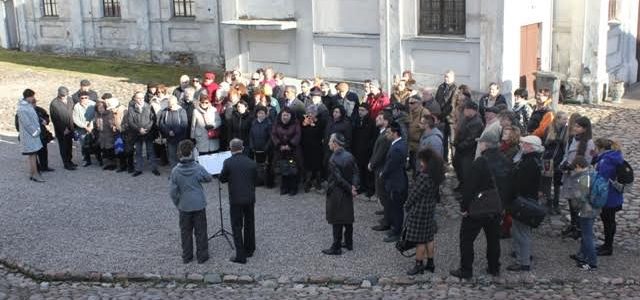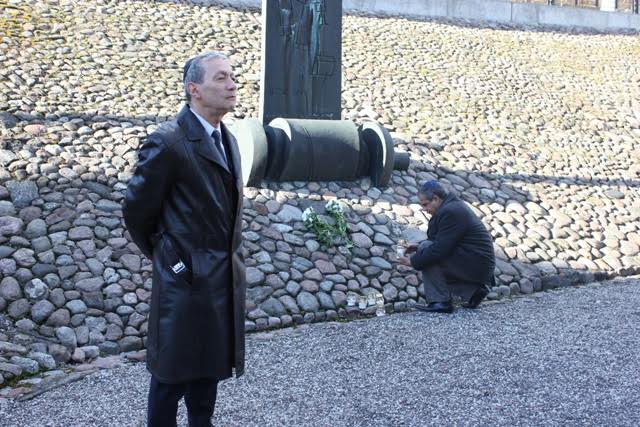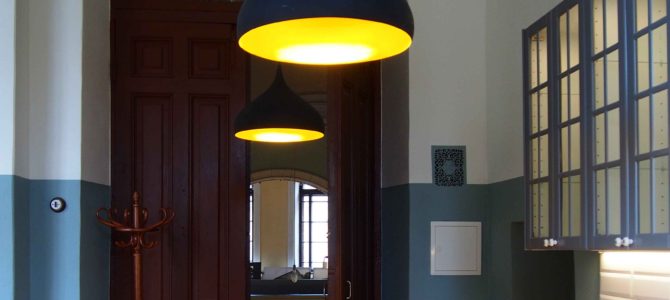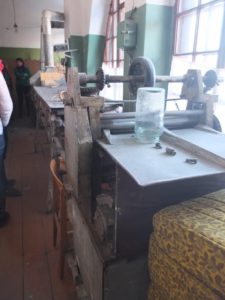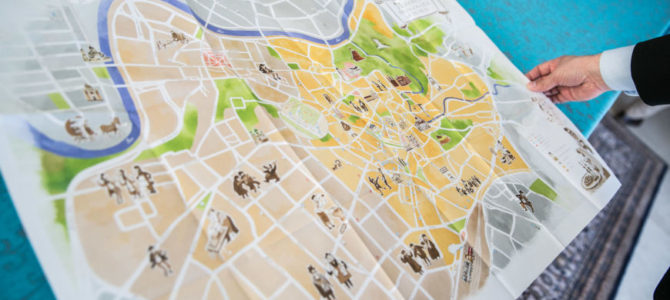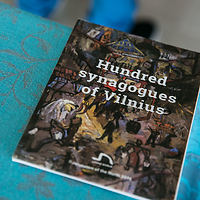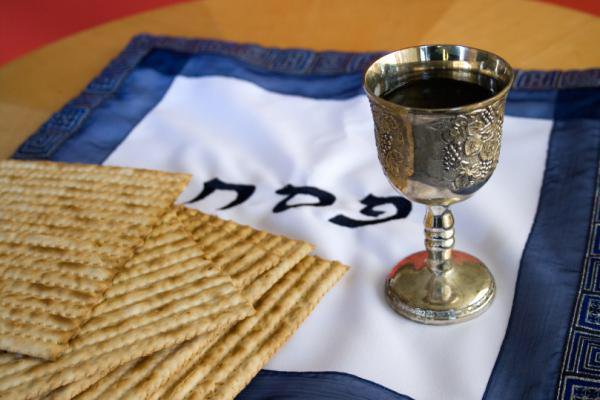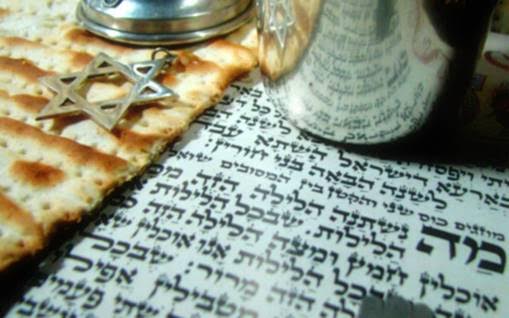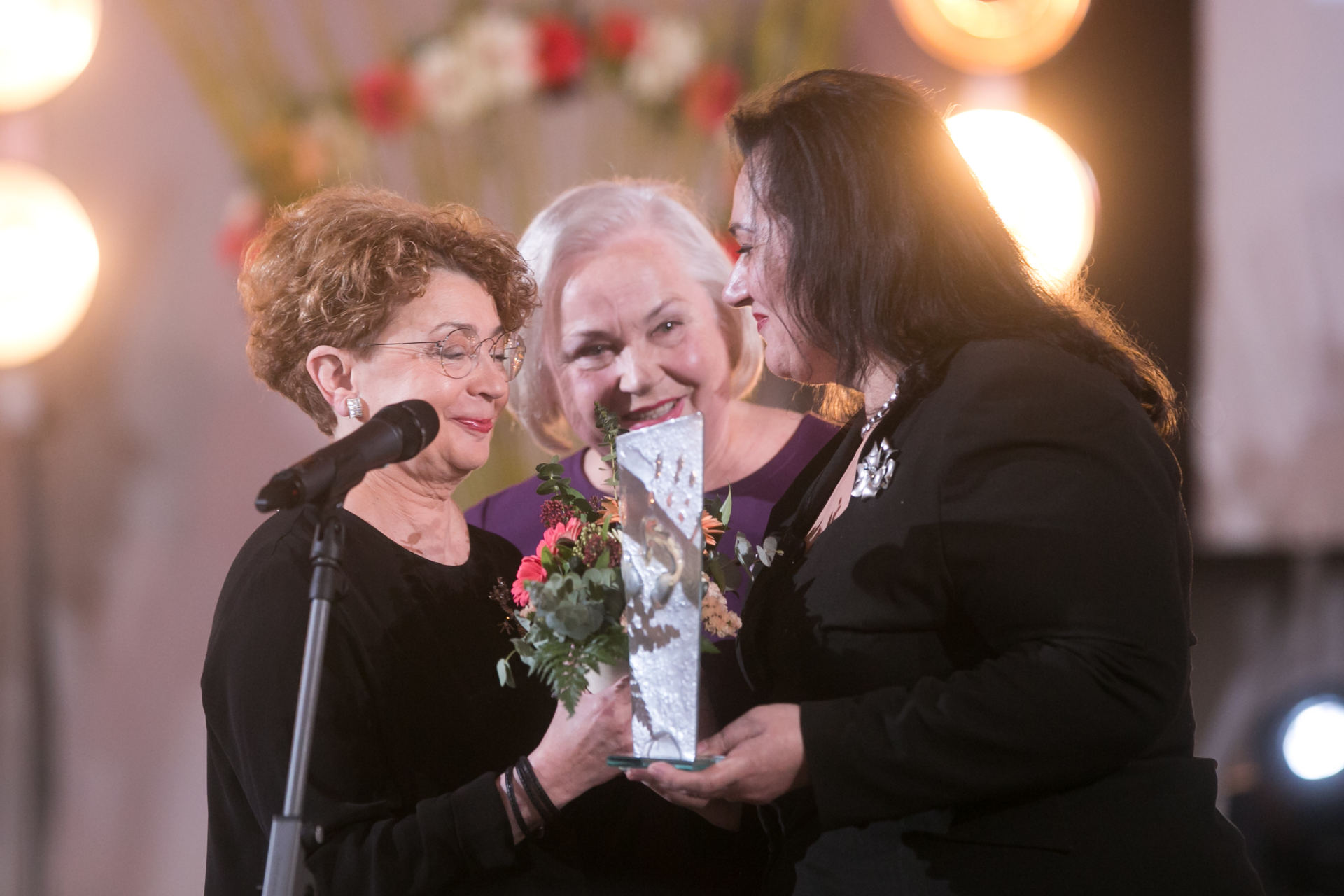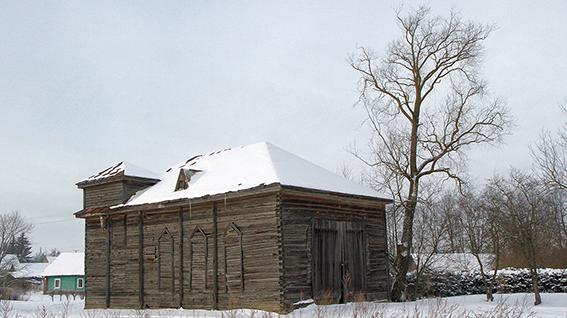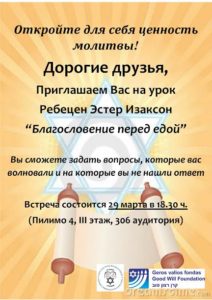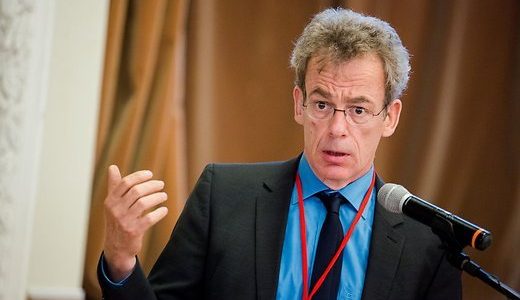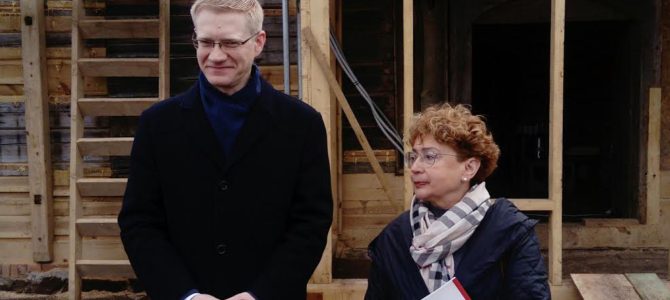
LJC chairwoman Fainia Kukliansky and Kaišiadorys mayor Tomkus, Žiežmarai, April, 2017
The ruined wooden synagogue in Žiežmarai, Lithuania, is being reborn for a new life. During the Holocaust it was used as a concentration point for imprisoning Jews awaiting execution. A large number of Jewish houses still stand near the synagogue, whose owners were murdered. The wooden synagogue is still an important heritage site, even if there is no one left to pray there. The Lithuanian Jewish Community contacted the mayor and council of Kaišiadorys about reconstructing the synagogue. Initially that request was denied, the council objected, and it took much effort to convince the local government the old synagogue really is a heritage site which besides holding interest to Jews around the world would also attract tourism and could be put to public use by the local population.
The Kaišiadorys city council approved the idea of adapting the building for public use in 2015 and applied for EU structural funds for renovation. A technical plan for renovating the Žiežmarai synagogue using funds from the Lithuanian state budget and the Goodwill Foundation was prepared and necessary studies conducted. After renovation the synagogue will serve as a monument to the murdered Jewish communities in Kaišiadorys and surrounding areas, and will be maintained to serve cultural functions for the local population.
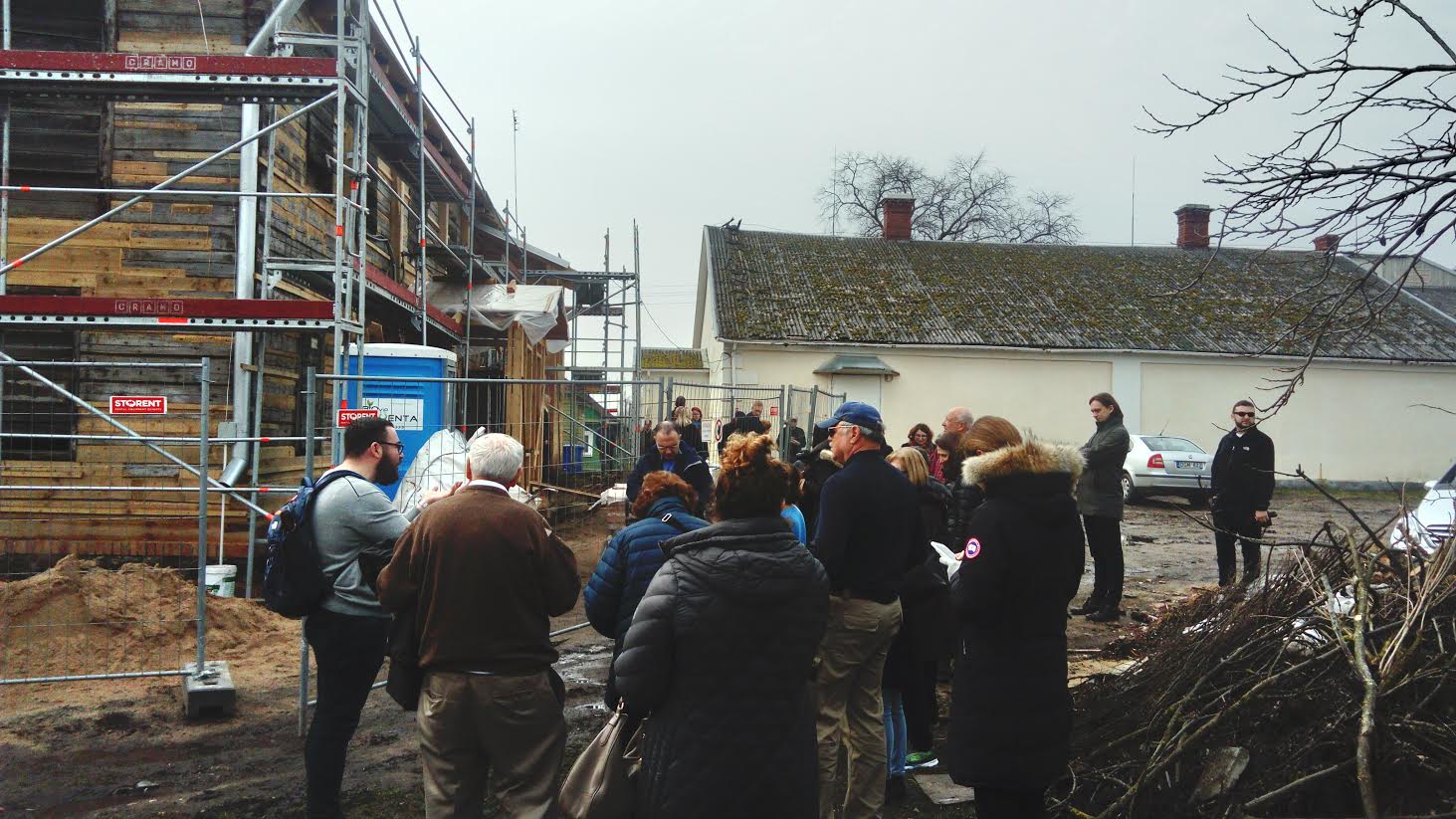
An AJC delegation visiting Lithuania toured the synagogue site.
According to the Architecture and Urban Studies Center of Kaunas Technical University, the first synagogue in Žiežmariai might have appeared in 1690 following the granting of a charter of rights to the Jewish community there. This synagogue is mentioned in 1738. A 1782 description of the local church district and town says the synagogue was built under the grant of rights by Jan Casimir (noting it had to have been obtained before 1668) and that were two Jewish cemeteries. In 1868 Žiežmariai had a population of 1,190, of whom 604 were Jews, the majority. In 1897 there were 2,795 residents in Žiežmariai, of whom 1,628 were Jews. It is mentioned that all three synagogues in Žiežmariai suffered from the fire in 1918.
